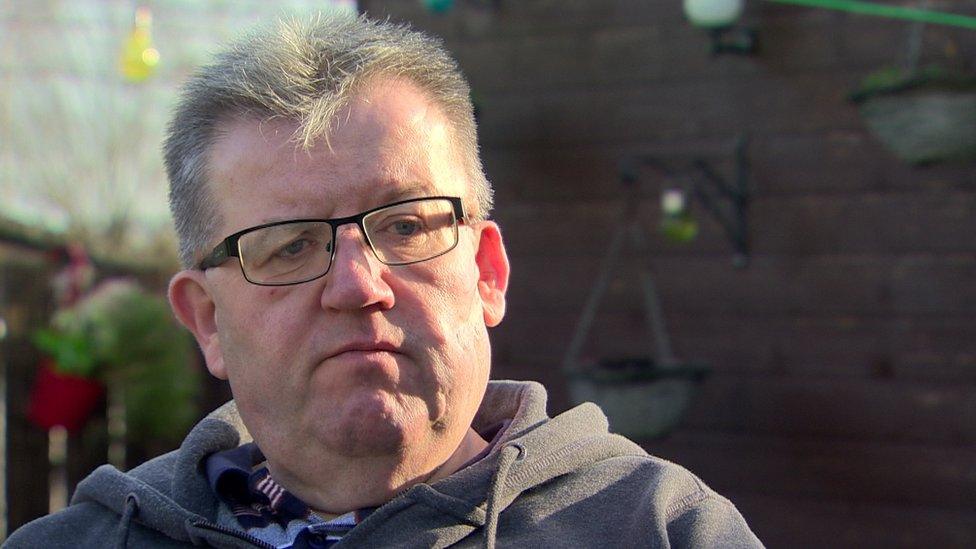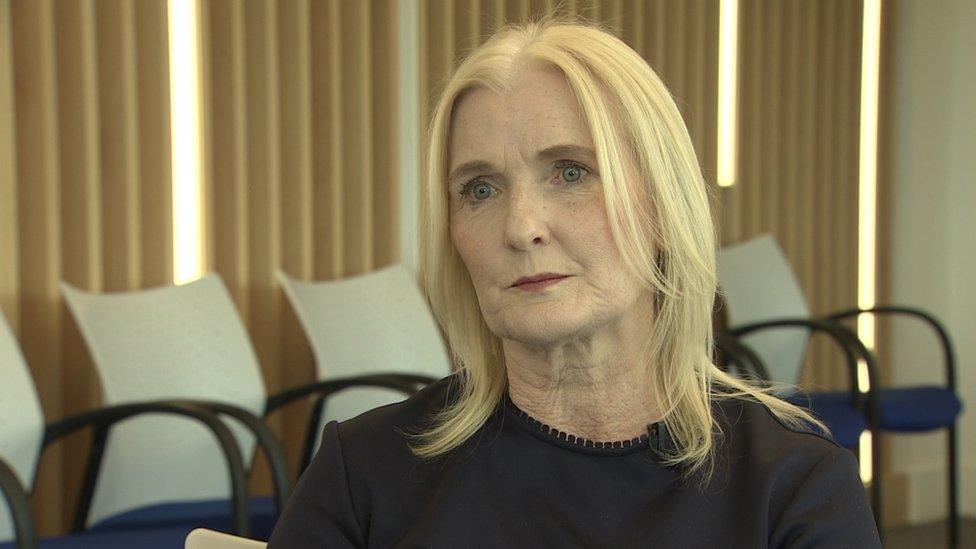Northern Ireland Health: Waiting list patient communication 'in disarray'
- Published

The system for communicating with patients on healthcare waiting lists in Northern Ireland is in disarray, the Public Services Ombudsman has found.
Its year-long investigation found that significant and repeated failures in updating patients amounted to "systematic maladministration".
The ombudsman urged the Department of Health (DoH) to work with trusts, GPs and others to address the failings.
DoH said it appreciated the distress and frustration of patients on lists.
It added the report will be carefully considered by them and trusts.
The investigation found that failures by trusts across Northern Ireland to follow guidance meant that patients were given little or no information once a referral had been made.
This included information on:
whether they are on a waiting list
whether their case is classed as routine, urgent or red flag
their expected wait time
who to contact if their circumstances change
The report, titled 'Forgotten - a report into Healthcare Waiting List Communications', external, included evidence from the Department of Health and trusts, as well as survey responses from GPs and members of the public.
It also contained several case studies, which detailed the impact this has had on patients.
Patients 'felt forgotten'
The investigation found trusts across Northern Ireland consistently failed to acknowledge receipt of a patient's referral when they received it, even though there was a procedure for updating people on waiting lists.
This procedure is called the integrated elective access protocol (IEAP).
The report revealed that in a survey of more than 640 members of the public, 88% felt forgotten.
It also said that less than half of those surveyed (44%) indicated they did not want to put additional pressure on the health service by asking questions, but that through sheer persistence, or through making a complaint to a trust, they found out about the status of their referral.
The report was critical of the department for not reviewing this protocol since 2009, and that it took no action to reinforce the guidelines even though it was aware they was not being followed in some areas.
About 20% of GPs in Northern Ireland responded to the investigation's survey.

The trusts' apparent reliance on GPs was misplaced, the investigation found
The majority of those (96%) said their needed to be major improvements in how waiting list information is communicated to patients.
The investigation said it was not the role of GPs to update patients and that the trusts' apparent reliance on GPs to provide this information is misplaced.

'You never hear anything'
John Doherty, from County Tyrone, has been on the waiting list for seven years to have his gallbladder removed.
He spoke to BBC News NI about the issue in 2022, but since then he has experienced more "attacks" related to his condition.
Mr Doherty said he feels like the health service is just "passing the buck".
"[They're] letting on they're still interested in taking it out, but you never hear anything at all from them," he told Good Morning Ulster.

John Doherty has been waiting for gallbladder surgery for seven years
Describing his ongoing symptoms, Mr Doherty said: "It affects you whenever you eat. [I] have to watch what I eat because it makes you want to be sick and that's on a weekly and daily basis."
He said the only recent communication he has received proactively from the Western Trust was a letter to ask if he still needed the surgery and to confirm his personal details.
"Our health service has really gone to the dogs," Mr Doherty added.

'System in disarray'
Commenting on the findings, Ombudsman Margaret Kelly said the investigation found a waiting list system "which is in disarray and sometimes even chaos".
"There is a lack of coherence between the different parts of the system, a lack of clear communication, and a lack of an overall agreed plan for improvement.

Margaret Kelly made a number of recommendations following the investigation
"On this basis, and those of repeated failures in many parts of the system, I make an overall finding of systemic maladministration and would urge the department to work more cohesively with the trusts, GPs and patient representatives to address the need for improvement," she said.
The ombudsman said a number of things needed to happen to improve things for patients, including;
a review of the IEAP by the department to make it clear to patients what information they can expect from the trusts
a standard letter of acknowledgement to all patients which states whether their referral is routine or urgent, and the expected waiting time
standard appointment and discharge letters across the trusts
updates to anyone waiting six months or more
an area on every trusts' website entitled 'Waiting List Information', containing relevant information for patients
The ombudsman will continue to engage with the department and the trusts over the next 12 months to ensure progress is made with the implementation of her recommendations, she said.
In a statement, the department said the ombudsman's investigation "underlines the importance of health service communication with patients on waiting lists".
It said that while improved information provision is needed, "a sustained programme of investment and reform to reduce and eventually eliminate the current backlog of care" is the "ultimate solution".
This backlog has taken years to build up and the department said it will "take years to be fully addressed".
The department added that, as the NIPSO report states, it is taking steps to improve the level of information available to patients.
It recently introduced a 'My Waiting Times NI' webpage, which provides patients with average outpatient waiting time information across Northern Ireland to help them prepare for their outpatient hospital consultation.
This webpage will be developed further in the coming months.
The department said it will continue to work closely with NIPSO, GPs and health and social care trusts to improve access to waiting time information for patients, but that a number of the recommendations within the report would require additional resources, both financial and staffing, at a time of severe budgetary pressures.